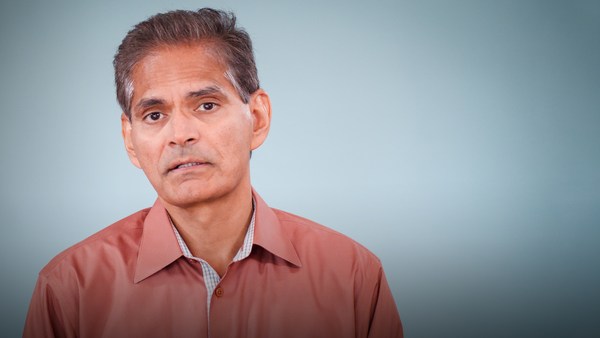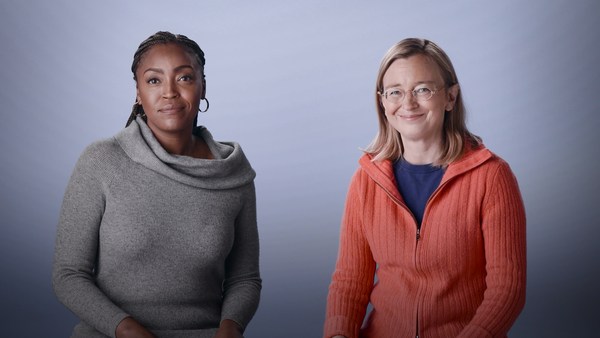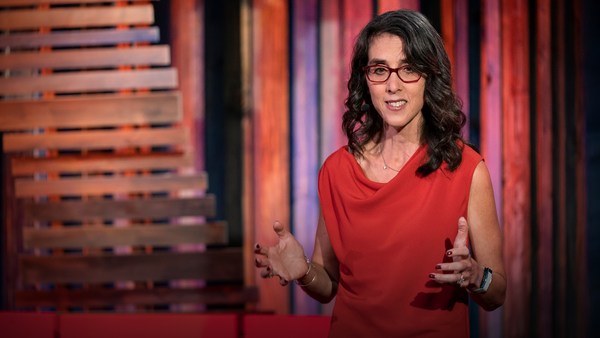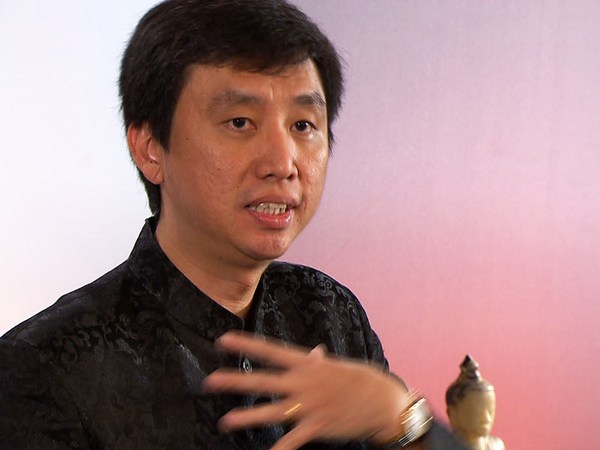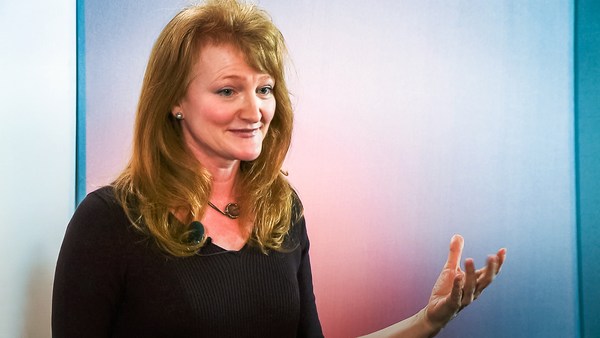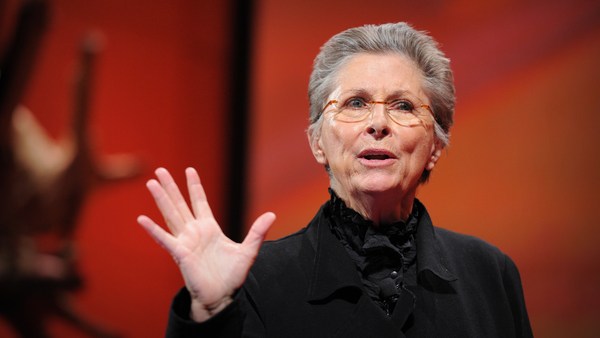So today I'm going to talk about the word goodwill. Goodwill, did you know, is a technical accounting term. It's an asset that's literally only created when a buyer shows up and pays a purchase price for a company that's more than the fair value of that company's net assets. So this unexplained differential is named goodwill. And with it, accountants actually can make balance sheets balance.
Now, of course, this isn't how most of us think of goodwill. We experience the more human definition of goodwill. And I remember very clearly when that definition first entered my life.
It was 1976, and I was five years old. And I was sitting there one morning in kindergarten class when in walked the father and older siblings of one of my friends. And they handed me a present. They gave me a little toy red helicopter, that sort of looked like this. And in the moment, I didn't really understand why they were giving it to me. I just remember sensing that they were happy and sad at the same time. And it wasn't only until much later that I had my aha moment. That my friend had lost his mom recently, and that this gift, it was a thank you, because I would often share my lunch with my friend on the many days that he would come to school without any lunch of his own.
And over time, as things happen, I lost the toy, but I never forgot the lesson and especially how it made me feel. My friend's father had rewarded kindness without cheapening it, and he made it tangible with an object, and he made it human in that exchange, and he made it shareable with this story. And in doing all of this, he created real value out of thin air by turning kindness into a scalable, collectively-owned asset called goodwill.
You know, and then for us, for many of us, my life, the years just pass at a dizzying pace and I collected a couple of fancy degrees, I became a dad myself three times over. And I found myself wheeling and dealing as an investment banker and a private equity investor for many years. And the lessons from that red helicopter, they seemed incredibly childish and weirdly misguided in the world of business and finance. Because let’s face it: non-revenue-generating investments in people, they're generally not measured, let alone rewarded.
But something happened in the summer of 2013 that would forever change the way I thought about kindness, goodwill and their roles in reshaping business. I was on a series of just deflating board calls involving a failed investment in a company called Ashley Stewart. Ashley Stewart as a clothing retail that has served and employed primarily plus-sized, moderate-income Black women in neighborhoods across America since 1991. And I felt accountable to my former employer, to my former investors, to the 1,000 plus employees at Ashley Stewart, and frankly, to myself because I had saved this company from a near-death bankruptcy filing just three years prior. So this time I did something, I took an action, I made a choice, I resigned as chairman of the board and I agreed to serve as a first-time CEO of this broken company. But I agreed to do it just for six months. I just wanted to avert a nasty liquidation. And then I wanted to come home and get on with my life.
I had immediate pangs of regret during those first few weeks at Ashley Stewart. The corporate headquarters was a converted warehouse. I just remember there being a lot of bugs. There was no Wi-Fi at the headquarters, and the stores didn't have computers. And because there was a lack of trust, there were vendors in the lobby demanding to be paid in cash upfront. And because of them, a lot of my employees were scared. And so I ended up having to hire an armed security guard to protect them. And I felt alone, like, on every dimension you can think of -- geography, industry, gender and, yeah, race. My first town hall, it went something along these lines. "Hi, I'm James. I've never done this before. You know, I may be the least qualified person to run this company. But I'm here and I'm willing to learn. Oh, and by the way, after this speech, I’ve got to head out to the DC,” -- that’s a distribution center, right -- "I've got to head out to the DC, I've got to find stuff to sell to fund payroll. But don't panic. Because I think that if we can center kindness and math together, then maybe we can get out of this together." And I don't know why I said some of these things with my outside voice.
(Laughter)
I may have panicked just a little bit, but the words were true and they did come from my heart. And you know, what happened was that the people who really wanted to solve these problems once and for all, they stepped up. And it was the women. It was the employees and customers alike at those stores, in those neighborhoods across America who came forth. And they offered me insight after insight as we work side by side together. And some of the customers, sensing that we were in a lot of trouble, they even offered to bring back their clothes hangers so that we could save money.
You know, I know what you may be thinking, you might think, geez, there were a lot of reasons why the ladies of Ashley Stewart might have rejected me. But they didn't. They did the exact opposite. And store after store sort of worked this way: They would say, “You’re James? You’re the new CEO of Ashley Stewart? Well, OK, let’s go.” And this played out in town after town, city after city. And their generosity toward one another and their kindness to me, it just rekindled memories of the red helicopter. And I remembered the lesson that goodwill, like, real goodwill, it is a real asset that can compound and be amplified independent of financial capital.
So late, late nights -- And I'm going to use these words very deliberately -- It inspired me to compose, draw, design, create a new business plan with new mathematical formulas, operational protocols that were woven together with multi-sensory storytelling, whose singular purpose was to create real value, driving real goodwill. The business plan fundamentally had three concentric spirals underpinning it. So picture this.
So first, we had the courage to establish a culture of kindness in the workplace. Period, end of story. It was a strategic priority day in, day out. And yeah, there were moments as individuals we failed. But as a collective, we were very successful in changing attitudes about the transformative power of kindness at work. Because you see, what kindness does, it distributes the joy, actually, of problem-solving to everyone. It creates a safe environment that unleashes innovation, especially the unselfish kind. And it turns perceived liabilities into assets, which, as any financial accountant will tell you, mathematically has to result in the creation of real equity value in every meaning of the word.
Second, once we felt sure about the authenticity of the internal goodwill that we had co-created, we just wanted to show the whole world and make it tangible to everybody. So by trusting our employees and our customers and by leveraging their smartphones and their social media platforms, we were able to scale our marketing creative efforts very fast in a very low-cost and organic way. We invited everyone in, and we were able to merge ecosystems and blurring the lines between outsider and insider, and them and us. And we were able to create a seat at the table for everyone, which, by the way, enabled us to leverage the assets and the balance sheets of everyone.
And third, once we centered goodwill, we had to center people. And it wasn't long before we realized we had to redo our financial formulas and our financial reporting. So payroll, instead of being an expense, became an investment. And internal communications, well, that was just a great way to train and to teach. And the materials that we created became critical first stanzas of the overall narrative that was our brand song. And working capital? Well, our vendors became effectively co-investors, and we would measure working capital as a unit of trust that we were rebuilding together step by step. And finally, human resources. Well, how could that possibly be a cost center?
See, when you center on maximizing goodwill, it forces you to actually measure it. And you realize that despite what the rules of accounting might say, that it's operations and leadership and culture that actually create goodwill. Not some outside source of financial capital. And it makes accounting actually accountable. And it isn't long also before you realize that the entire flow of your operations has to naturally follow suit.
So to illustrate all of this, I'm going to take you back to the holiday season of 2013, which was only four months removed from my sort of "meh" town hall. We were out of money at this point, and I was terrified. But we made a couple of decisions that seemed to have long-term importance for our efforts. We hosted a really modest holiday party at a homeless shelter for women in Brooklyn, New York. And at this point, we didn't have anything to give, so we gave our time. We gave our hearts, and we found a few boxes of merchandise samples that we donated. And around that time as well, we organized a chain-wide sales competition. The top 40 stores earned the right to donate 250 dollars to a local charity of their own choosing.
Together, these two things, right, the event -- the party, the competition, they were just a way for us to say "thank you" and "goodbye" to the local neighborhoods and communities that had supported this company for 20 years. And the outpouring was just amazing. We saw real friendships that have been developed over those 20 years play out right in front of us. And our newly installed e-com platform? We operated it in a way that accentuated that and connected people, rather than diminishing humanity. And sales just exploded. And just like that, we had found a way to operationalize goodwill. In our internal culture, in our outbound sales and marketing, but also, perhaps most significantly, in our sense of compensation system. There were all three spirals just sort of doing this, mutually reinforcing each other. We measured everything.
You know, down the road, as the strategy really took hold, and I was finally able to secure some financial capital and make some necessary technological investments, we just did the same thing, just over and over again at scale. So we rolled out something called a CEO Citizenship Award. That was the most prestigious, highest-compensated bonus system in the company. It went to those employees who lived out the following credo. You act like an owner. Be a good friend. Be a good mentor. We never factored in sales or revenues into these determinations. Second, you know, our marketing team, our outbound-facing consumer team continued to do most of the most important internal communications. And I, as a former high school teacher, I relished the fact that I could teach the principles of money, life and joy to my colleagues at scale. And that really kind of sad holiday party? Well that evolved into something big. We called it Finding Ashley Stewart, which was an annual, nationwide, year-long search for unsung women leaders in our communities. It would culminate in front of 3,000 screaming fans at the Brooklyn Kings Theater and a star-studded concert. And the best part of all of it was that the vendors, which by now included some of the world's leading tech and financial companies, they're the ones who funded all of this.
You know, I ended up spending seven years at Ashley Stewart, leading it. So, far from getting on with my life, it became part of my life, especially the friendships. And we had to make some tough business decisions along the way, and not everyone made it. But our overall strategy and philosophy generated staggering results. And yes, it showed up in our financial statements, too. So within two years, we generated more in annual operating profit than we paid for all of the assets of the company. And our digital strategy, which never forgot to center the real friendships in the stores, it landed us on the stages of the most prestigious business conferences in the world celebrating our growth and our innovation, only a few years removed from not even having Wi-Fi. And it wasn't long before the financial community, well, they changed their minds and they showed up at our headquarters, but this time with their checkbooks, and they stroked us a check that made us convert our real goodwill into accounting goodwill to the tune of well north of 100 million dollars.
And I know that none of this would have been possible without the lessons that I learned from my friend's father way back in kindergarten. He invested dollars, but also his time and his heart into a little toy red helicopter in 1976. And in the way that he did it, it created a real asset called goodwill. And that goodwill compounded quietly for decades and then ultimately helped save a company, around a thousand jobs, a safe place for a really deserving group of women, and over 1 billion dollars in overall economic productivity. And in doing so, he taught an enduring lesson that helped this grown man regain his balance, a true balance, by remembering to slow down and to see the world through the eyes of a five-year-old child who knows unequivocally that there is one and only one definition of goodwill that creates real value in life and yeah, in business, too.
Thank you very much for listening.
(Applause)
